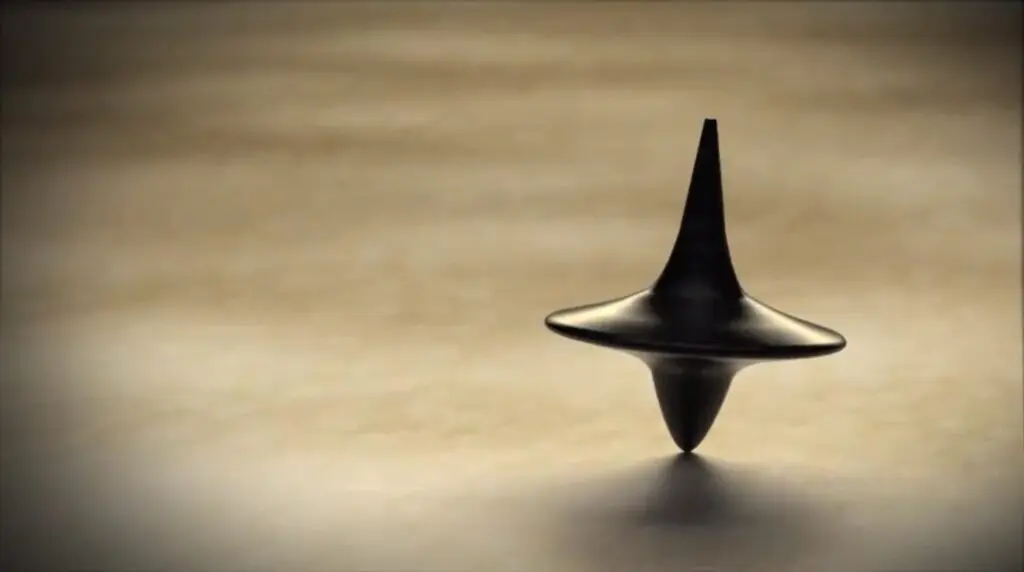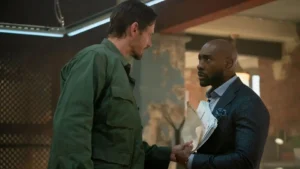It’s been 13 years since the release of Inception, yet the film community still debates what the ending means. With the film, Christopher Nolan challenged audiences to go with him down a rabbit hole of dreams within dreams that made more than one head spin in movie theaters around the world. Leonardo DiCaprio stars as Cobb, a thief tasked to steal corporate secrets by infiltrating someone’s dreams and reading them directly from the subject’s mind. At the core, though, the film is a character exploration of a man haunted by his own demons.
The movie introduces a plethora of rules for when the characters are dreaming. They can create and destroy entire cities at will, and play around with gravity and physics. Time passes differently in a dream, and once you start dreaming within a dream, it slows down even more. If you die in a dream, you simply wake up from it.
During the film, Cobb reveals that he feels responsible for his wife’s suicide — they’d spent an entire life together in dreamland, so once they woke up, she wouldn’t face reality and still thought they were dreaming. She jumped through the window thinking she would finally get to see their kids again and died. To distinguish dreams from reality, they use specific objects called totems, that are unique to each character — Cobb’s is a spinning top that doesn’t stop spinning if they are in a dream, but falls off when they are in reality. During the film’s final scene, Cobb finally reunites with his two kids many years later, and in the final shot, he spins the top. However, it cuts to black before we know whether or not it fell off or not, leaving the question up in the air — is he still dreaming, or is he back in reality?
The Final Moments
In the film, we learn that Cobb is on the run as the police blame him for his wife’s murder, and he hasn’t seen his kids in person in a long time. Most devastatingly, we learn that even when he’s dreaming, he can’t see their faces. He accepts the mission because if he succeeds, charges against him will be lifted, and he will be able to reunite with his family.
When writing a screenplay and developing the characters, it is often said that to complete an arc, one needs to answer two questions. What does the character want, and what does the character need? The want is the reason for the plot to exist, while the need speaks to the film’s actual story, the theme it wants to convey. In Inception, Cobb wants to reunite with his family. What he really needs, though, is to confront his past and learn that his wife’s death was not his fault.
Once he learns that truth, his arc is complete, and he can move on. When he satisfies his need, he gets what he wants, to see his children again. And in the film’s final moments, we learn that it doesn’t even matter whether he meets them again in his dreams or in reality. He was subconsciously unable to see their faces because of the guilt he felt, but once he gets rid of that, he is able to see them again in his dreams. Whether or not it happens in reality, too, is irrelevant.
Dream versus Reality Conundrum
The question of having an open ending in a movie seems like the ultimate contradiction — if a question is still left in the air, the filmmaker truly hasn’t finished telling the story. Right? As humans, we are used to two possible outcomes, either something happens, or it doesn’t. So the natural reaction audiences had after the Inception credits rolled was to say, “So what really happened?”
An open ending is an oxymoron, a figure of speech of two contradictory terms put together to form a new meaning. Open endings are generally answers in and of themselves — the question audiences have is, “Does the spin top fall or not?” but by not answering the question, Nolan is actually saying that it doesn’t really matter. The key is that he’s back with his children.
So Cobb might be in a dream, or he might be in reality, and we will never know. But neither should we care because all we want as an audience to see is the character complete his arc and fulfill his needs. Once that is done, everything else is irrelevant.
As I’ve been teasing, Cobb ends up in his own reality. Whether or not he’s in the rest of the world’s reality awake or not is irrelevant to the movie. He wanted to reunite with his kids, and he did. So he is writing his own reality from now on, because his mind is free from guilt and second thoughts.
Nolan’s Explanation
Speaking to Princeton University’s 2015 graduating class, Nolan revealed why the ending feels so relevant to us, arguably becoming one of the most iconic open endings in film history:
“The way the end of that film worked, Leonardo DiCaprio’s character Cobb — he was off with his kids, he was in his own subjective reality. He didn’t really care anymore, and that makes a statement: perhaps, all levels of reality are valid. The camera moves over the spinning top just before it appears to be wobbling, it was cut to black.
I skip out of the back of the theater before people catch me, and there’s a very, very strong reaction from the audience: usually a bit of a groan. The point is, objectively, it matters to the audience in absolute terms: even though when I’m watching, it’s fiction, a sort of virtual reality. But the question of whether that’s a dream or whether it’s real is the question I’ve been asked most about any of the films I’ve made. It matters to people because that’s the point about reality. Reality matters.”




